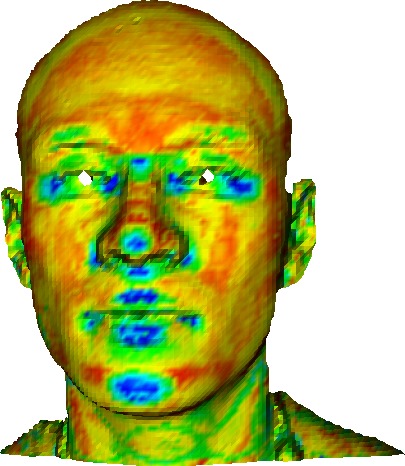- The modelling of the human head and face using deep learning tools and techniques.
- Medical applications of face/head models in craniofacial interventions.
- Medical image segmentation and classification.
- Safe and explainable autonomous driving and rail transport using Computer Vision.
- Vision-guided robotics - both manipulators and mobile platforms.


